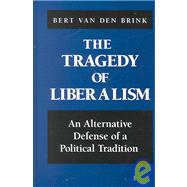The Tragedy of Liberalism: An Alternative Defense of a Political Tradition
, by Van Den Brink, Bert; Baynes, Kenneth; Brink, Bert Van Den- ISBN: 9780791446690 | 0791446697
- Cover: Hardcover
- Copyright: 9/1/2000
| Preface | 1 | (5) | |||
| Part 1: Liberalism, Pluralism, and Tragedy | 5 | (34) | |||
|
5 | (4) | |||
|
9 | (18) | |||
|
9 | (6) | |||
|
15 | (12) | |||
|
27 | (12) | |||
|
28 | (4) | |||
|
32 | (7) | |||
| Part 2: Political Liberalism versus Liberal Perfectionism | 39 | (46) | |||
|
39 | (2) | |||
|
41 | (22) | |||
|
42 | (7) | |||
|
|||||
|
49 | (14) | |||
|
63 | (22) | |||
|
63 | (6) | |||
|
|||||
|
69 | (6) | |||
|
75 | (4) | |||
|
79 | (6) | |||
| Part 3: Deliberative Democracy as a Way Out? | 85 | (42) | |||
|
85 | (2) | |||
|
87 | (20) | |||
|
88 | (2) | |||
|
90 | (5) | |||
|
|||||
|
95 | (6) | |||
|
101 | (6) | |||
|
107 | (20) | |||
|
108 | (5) | |||
|
113 | (6) | |||
|
119 | (4) | |||
|
123 | (4) | |||
| Part 4: Liberal Community, Mutual Recognition, and Citizenship Virtue | 127 | (54) | |||
|
127 | (2) | |||
|
129 | (16) | |||
|
129 | (6) | |||
|
135 | (10) | |||
|
145 | (18) | |||
|
146 | (5) | |||
|
151 | (12) | |||
|
163 | (18) | |||
|
163 | (8) | |||
|
171 | (4) | |||
|
175 | (6) | |||
| Part 5: Liberalism and Multiculturalism | 181 | (44) | |||
|
181 | (4) | |||
|
185 | (18) | |||
|
186 | (6) | |||
|
192 | (11) | |||
|
|||||
|
203 | (22) | |||
|
204 | (7) | |||
|
211 | (8) | |||
|
219 | (6) | |||
| Notes | 225 | (28) | |||
| References | 253 | (8) | |||
| Index | 261 |
The New copy of this book will include any supplemental materials advertised. Please check the title of the book to determine if it should include any access cards, study guides, lab manuals, CDs, etc.
The Used, Rental and eBook copies of this book are not guaranteed to include any supplemental materials. Typically, only the book itself is included. This is true even if the title states it includes any access cards, study guides, lab manuals, CDs, etc.
Digital License
You are licensing a digital product for a set duration. Durations are set forth in the product description, with "Lifetime" typically meaning five (5) years of online access and permanent download to a supported device. All licenses are non-transferable.
More details can be found here.






